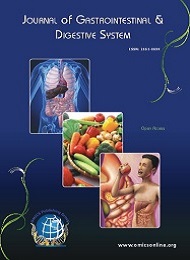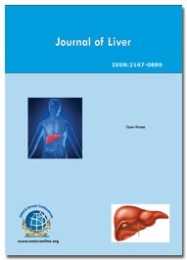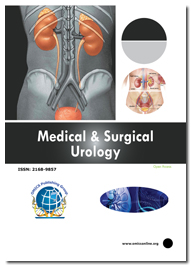Theme: Innovative schemes and recent approaches in Pediatric Gastroenterology
Pediatric Gastroenterology 2016
Accreditation Statement
This activity has been planned and implemented in accordance with the accreditation requirements and policies of the Accreditation Council for Continuing Medical Education (ACCME) through the joint providership of PeerPoint Medical Education Institute and Conference Series, LLC. PeerPoint Medical Education Institute is accredited by the ACCME to provide continuing medical education for physicians.
Designation Statement
PeerPoint Medical Education Institute designates the live format for this educational activity for AMA PRA Category 1 Credits™. Physicians should only claim credit commensurate with the extent of their participation in the activity.
ConferenceSeries Ltd invites all the participants from all over the world to attend "International Conference on Pediatric Gastroenterology" during June 15-16, 2016 at Philadelphia, USA. We cordially welcome all the eminent researchers, students and delegates to take part in this upcoming conference to witness invaluable scientific discussions and contribute to the future innovations in the field of Pediatrics Gastroenterology.
Pediatric Gastroenterology 2016 is the global platform to discuss and imbibe about Pediatric Gastroenterology, Gastrointestinal Defects in Children, Biological Aspects of Gastrointestinal Function, Clinical Gastric Problem in Children, Gastrointestinal Surgery in Pediatric, Gastroenterology Oncology in Pediatrics, Gastrointestinal Advance Treatment Procedure, Pediatrics Gastrointestinal Drugs, Gastroenterologist Meeting, Entrepreneur Investment Meeting.
TRACK 1: Pediatric and Neonatal Gastroenterology
The aim of the study of pediatrics gastroenterology is to reduce infant and child rate of deaths, control the spread of infectious disease, promote healthy lifestyles for a long disease-free life and help ease the problems of children and adolescents. It can be acknowledged that this can be reached by learning the major and primary subject on gastroenterology. It includes the treatments involved for the betterment of gastrointestinal health in children.
Pediatrics Gastroenterology is the study of the normal function and diseases of the oesophagus, stomach, small intestine, colon and rectum, pancreas, gallbladder, bile ducts and liver in the children. It involves a detailed understanding of the anatomy, gastrointestinal physiology looks at the functioning of the Gastro-Intestinal (GI) system. Digestion describes how ingested food is broken down into smaller biochemical components; absorption how the products of digestion are absorbed into the body; motility how food and waste products are moved from mouth to anus; and secretion how digestive juices etc. are controlled and secreted. Principle of GI function included neural control, hormonal control, gastro-intestinal blood flow, Clinical physiology consists of colorectal pelvic floor teams, rectal cancer, gastro and neurogastoenterology, respiratory and upper GI surgery. GI Physiologists will intubate the GI tract with highly sophisticated 3D, high resolution technology including ultrasound and produce comprehensive assessments of patient’s motility of the whole of the GI tract and assess anal sphincter integrity, stage rectal cancer and assess sepsis with the aid of endoluminal ultrasound.
Related Conference: Pediatrics Conferences September 14-16, 2016 Amsterdam, The Netherlands; Pediatric Surgery Conferences September 14-16, 2016 Amsterdam, Netherlands; Pediatric Dermatology ConferencesOctober 10-11, 2016 Manchester, UK; Neonatology Conferences November 14-16, 2016 Valencia, Spain;Neonatal Conferences November 14-16, 2016 Valencia, Spain; Pediatric Neurology Conference November 14-16, 2016 Valencia, Spain; 28th International Pediatric Association Congress of Pediatrics Aug 17-22 2016,Canada; 2016 American Academy of Pediatrics National Conference & Exhibition October 22-25 2016, USA; 15th Asian Pacific Congress of Pediatrics January 21-24 2016, India; 6th Congress of the European Academy of Pediatric Societies October 21-25 2016, Switzerland.
TRACK 2: Biology of Gastrointestinal Function
The gastrointestinal tract (GIT) arises initially during the process of gastrulation from the endoderm of the trilaminar embryo (week 3) and extends from the buccopharyngeal membrane to the cloacal membrane. The tract and associated organs later have contributions from all the germ cell layers. Digestion is the breakdown of food into smaller particles or individual nutrients. It is accomplished through six basic processes, with the help of several body fluids—particularly digestive juices that are made up of compounds such as saliva, mucus, enzymes, hydrochloric acid, bicarbonate, and bile.
Enterohepatic circulation refers to the circulation of biliary acids, bilirubin, drugs, or other substances from the liver to the bile, followed by entry into the small intestine, absorption by the enterocyte and transport back to the liver. The mixture of organisms regularly found at any anatomical site is referred to as the normal flora, except by researchers in the field who prefer the term "indigenous microbiota”. The gastrointestinal mucosal immune system has the daunting task of coexisting with an incredibly complex mix of luminal antigens, including partially digested dietary constituents, host proteins, and commensal bacteria, while maintaining the capacity to recognize and eliminate pathogenic microbial organisms and transformed epithelial cells.
Related Conference: Pediatrics Conferences September 14-16, 2016 Amsterdam, The Netherlands; Pediatric Surgery Conferences September 14-16, 2016 Amsterdam, Netherlands; Pediatric Dermatology ConferencesOctober 10-11, 2016 Manchester, UK; Neonatology Conferences November 14-16, 2016 Valencia, Spain;Neonatal Conferences November 14-16, 2016 Valencia, Spain; Pediatric Neurology Conference November 14-16, 2016 Valencia, Spain; 28th International Pediatric Association Congress of Pediatrics Aug 17-22 2016,Canada; 2016 American Academy of Pediatrics National Conference & Exhibition October 22-25 2016, USA; 15th Asian Pacific Congress of Pediatrics January 21-24 2016, India; 6th Congress of the European Academy of Pediatric Societies October 21-25 2016, Switzerland.
TRACK 3: Clinical Pediatric Gastric Problems
Functional gastrointestinal (GI) and motility disorders are common among children. Disorders like functional abdominal pain, chronic constipation and/or soiling, and irritable bowel syndrome (IBS) occur in children at a rate similar to adults. Diarrhoea is the body's way of ridding itself of germs, and most episodes last a few days to a week. Diarrhoea often occurs with fever, nausea, vomiting, cramps, and dehydration. Failure to thrive refers to children whose current weight or rate of weight gain is much lower than that of other children of similar age and gender.
GERD is a disorder of the lower esophageal sphincter muscle. This muscle keeps the stomach’s acid contents in place. If it is weak, or too relaxed, then it will not function properly, and the acid will travel up into the esophagus. Inflammatory bowel disease (which is not the same thing as irritable bowel syndrome, or IBS) refers to two chronic diseases that cause inflammation of the intestines: ulcerative colitis and Crohn's disease.
Related Conference: Pediatrics Conferences September 14-16, 2016 Amsterdam, The Netherlands; Pediatric Surgery Conferences September 14-16, 2016 Amsterdam, Netherlands; Pediatric Dermatology ConferencesOctober 10-11, 2016 Manchester, UK; Neonatology Conferences November 14-16, 2016 Valencia, Spain;Neonatal Conferences November 14-16, 2016 Valencia, Spain; Pediatric Neurology Conference November 14-16, 2016 Valencia, Spain; 28th International Pediatric Association Congress of Pediatrics Aug 17-22 2016,Canada; 2016 American Academy of Pediatrics National Conference & Exhibition October 22-25 2016, USA; 15th Asian Pacific Congress of Pediatrics January 21-24 2016, India; 6th Congress of the European Academy of Pediatric Societies October 21-25 2016, Switzerland.
TRACK 4: Pediatric and Neonatal Practices
The aim of the pediatric practices is to reduce infant and child rate of deaths, control the spread of infectious disease, promote healthy lifestyles for a long disease-free life and help ease the problems of children and adolescents. It can be acknowledged that this can be reached by learning the major and primary subject on General Pediatrics. Pediatrics includes the basic treatments involved for the betterment of pediatric health. The most significant problems can be due to nutritional deficiencies to the overall health of infants and children because growth and development can be seriously hindered by shortages in essential vitamins or nutrients.
Related Conferences:
Pediatrics Conferences September 14-16, 2016 Amsterdam, The Netherlands; Pediatric Surgery Conferences September 14-16, 2016 Amsterdam, Netherlands; Pediatric Dermatology Conferences October 10-11, 2016 Manchester, UK; Neonatology Conferences November 14-16, 2016 Valencia, Spain; Neonatal Conferences November 14-16, 2016 Valencia, Spain; Pediatric Neurology Conference November 14-16, 2016 Valencia, Spain, Emergency Medicine: Practicing According to the Evidence, April 25-29 2016, United States, Employee Health and Wellbeing Conference 2015, October 11-13 2015, Qatar, Primary Care: ECG and Arrythmia Interpretation with Focus on Clinical Approach 2016, January 3-10 2016, United States, CREF 2016 - The 36th Annual Cardiothoracic Surgery Symposium, February 24-27 2016, United States, 9th Annual Pain and Migraine Therapeutics Summit 2015, September 23-24 2015, United States.
TRACK 5: Pediatric Gastrointestinal Oncology
Surgeons are continuing to improve their techniques for operating on colorectal cancers. They now have a better understanding of what makes colorectal surgery more likely to be successful, such as making sure enough lymph nodes are removed during the operation. Esophageal cancer usually begins in the cells that line the inside of the esophagus. Pancreatic cancer begins in the tissues of your pancreas an organ in your abdomen that lies horizontally behind the lower part of your stomach. Colorectal cancer is cancer that starts in the colon or rectum. The colon and the rectum are parts of the large intestine, which is the lower part of the body’s digestive system. Anal cancer is an uncommon type of cancer that occurs in the anal canal. The anal canal is a short tube at the end of your rectum through which stool leaves your body. Gallbladder disease is relatively uncommon in the pediatric population, pediatric patients comprise a disproportionate number of cholecystectomies; this rate has been rising in recent years. Pediatric gallbladder disease is most commonly associated with haemolytic diseases. Stomach cancer is a disease in which malignant cancer cells form in the lining of the stomach.
Related Conferences: Pediatrics Conferences September 14-16, 2016 Amsterdam, The Netherlands; Pediatric Surgery Conferences September 14-16, 2016 Amsterdam, Netherlands; Pediatric Dermatology Conferences October 10-11, 2016 Manchester, UK; Neonatology Conferences November 14-16, 2016 Valencia, Spain; Neonatal Conferences November 14-16, 2016 Valencia, Spain; Pediatric Neurology Conference November 14-16, 2016 Valencia, Spain; SIOPE 4th Paediatric Oncology Conference January 20–21 2016, Belgium; 40th Annual Association of Pediatric Oncology Social Work Conference April 13-15 2016, Rhode Island; 90th Annual Meeting of the Canadian Pediatric Society Jun 22-25 2016 Canada; 28th International Pediatric Association Congress of Pediatrics Aug 17-22 2016, Canada; 2016 American Academy of Pediatrics National Conference & Exhibition October 22-25 2016, USA.
TRACK 6: Pediatric Gastrointestinal Diseases
Gastrointestinal defects affect any part of your gastrointestinal tract. This includes the oesophagus that connects your mouth with your stomach, and your stomach to your intestines. Food travels through that tract after eating. Barrett's oesophagus is a condition where the cells of the oesophagus (gullet) grow abnormally. The biliary tract refers to the liver, gall bladder and bile ducts, and how they work together to make, store and secrete bile. Biliary disease often presents with upper abdominal pain. The pain quality is a penetrating aching or tightness, typically severe and located in the epigastrium.
The intestines are a long, continuous tube running from the stomach to the anus. Most absorption of nutrients and water happen in the intestines. The intestines include the small intestine, large intestine, and rectum. Stomach flu (enteritis): Inflammation of the small intestine. Infections (from viruses, bacteria, or parasites) are the common cause. The large intestine, also called the colon or the large bowel, is the last part of the digestive system in vertebrates. Water is absorbed here and the remaining waste material is stored as faeces before being removed by defecation. The liver is a large, meaty organ that sits on the right side of the bell. The liver's main job is to filter the blood coming from the digestive tract, before passing it to the rest of the body, Hepatitis: Inflammation of the liver, usually caused by viruses like hepatitis A, B, and C. The pancreas is about 6 inches long and sits across the back of the abdomen, behind the stomach. Systemic diseases in children are Antibiotic Therapy for Peritonitis, food poisoning.
Related Conference: Pediatrics Conferences September 14-16, 2016 Amsterdam, The Netherlands; Pediatric Surgery Conferences September 14-16, 2016 Amsterdam, Netherlands; Pediatric Dermatology ConferencesOctober 10-11, 2016 Manchester, UK; Neonatology Conferences November 14-16, 2016 Valencia, Spain;Neonatal Conferences November 14-16, 2016 Valencia, Spain; Pediatric Neurology Conference November 14-16, 2016 Valencia, Spain; 28th International Pediatric Association Congress of Pediatrics Aug 17-22 2016,Canada; 2016 American Academy of Pediatrics National Conference & Exhibition October 22-25 2016, USA; 15th Asian Pacific Congress of Pediatrics January 21-24 2016, India; 6th Congress of the European Academy of Pediatric Societies October 21-25 2016, Switzerland.
TRACK 7: Pediatric Nutrition
Pediatric nutrition is the maintenance of a proper well-balanced diet consisting of the essential nutrients and the adequate caloric intake necessary to promote growth and sustain the physiologic requirements at the various stages of a child's development. Pediatric nutritional needs vary considerably with age, level of activity, and environmental conditions and they are directly related to the rate of growth. Breast Feeding has important ingredients that are not found in any infant formula, to build the baby’s immune system. Pediatric nutrition must consist of essential Vitamins and Minerals which help for the growth and development. Proteins are the basic units required mainly for the construction of the body muscles and in all the metabolic activities of the body. To increase the calcium levels intake of dairy products are needed.
Related conferences: International Conference on Pediatric Nutrition May 16-17, 2016 San Antonio, USA; 4th International Conference on Pediatrics March 29-March 31 2016, USA; Annual Pediatric Emergency MedicineConference March 29-March 31 2016, USA; International Conference and Exhibition on Pediatric OncologyAugust 04-06 2016 Canada; 2nd International Conference and Exhibition on Pediatric Cardiology September 22-24 2016 USA; Latin American Congress of Gastroenterology, Hepatology and Pediatric Nutrition 18–21 November 2015 Lima, Peru; 3rd International Conference on Nutrition and Growth (N&G 2016) 17–19 March 2016 Vienna, Austria; 2nd Foetal Medicine, Paediatric Gastro, Hepatology & Nutrition Conference 25–27 February 2016 Abu Dhabi, United Arab; Emirate Pediatrics 2040: Emerging Trends and Innovations for the Next 25 Years 6–9 January 2016 Dana Point, United States; 5th Global Congress for Consensus in Pediatrics and Child Health 3–6 March 2016 Xi'an, China; 3rd World Congress on Controversies in Pediatrics (CoPedia) 31 March – 3 April 2016 Barcelona, Spain.
TRACK 8: Pediatric Gastrointestinal Diseases Diagnosis
Barium enema: lower bowel examination, barium enema is an X-ray test that allows your doctor to examine the lower part of your bowel. Barium swallow and barium meal tests: Both a barium swallow and a barium meal test involve a series of X-rays being taken of your upper digestive tract. Cholangiography: Cholangiography is an examination that uses X-rays and contrast medium (dye) to view your bile ducts. Cholecystography:Cholecystography is a procedure that helps to diagnose gallstones using X-rays and contrast medium to show up the gallbladder and bile duct. Coeliac disease: tests, find out about the tests used to diagnose coeliac disease.Colonoscopy: examination of the colon, a colonoscopy is an examination of the colon (large bowel), using a colonoscope a long, thin, flexible tube containing a camera and a light. Endoscopic retrograde cholangiopancreatography (ERCP): ERCP is an investigation used to view the gallbladder, bile ducts, pancreas and pancreatic duct. Endoscopy: In an endoscopy, a doctor looks down a thin lighted tube inserted into the body to see the internal structures. Faecal occult blood test: Faecal occult blood test is a chemical test that can detect tiny traces of blood in the stool that may indicate the presence of disease. Gallstones: diagnosis, several tests may be used in the diagnosis of gallstones, including blood tests, ultrasound and other imaging tests.Gastro-oesophageal reflux: tests and investigations, read about some of the tests used to diagnose and assess gastro-oesophageal reflux. Gastroscopy: examination of the upper digestive tract, gastroscopy is an examination of the upper digestive tract (the stomach and duodenum) using a long, thin, flexible tube with a camera.
Related Conference: Pediatrics Conferences September 14-16, 2016 Amsterdam, The Netherlands; Pediatric Surgery Conferences September 14-16, 2016 Amsterdam, Netherlands; Pediatric Dermatology ConferencesOctober 10-11, 2016 Manchester, UK; Neonatology Conferences November 14-16, 2016 Valencia, Spain;Neonatal Conferences November 14-16, 2016 Valencia, Spain; Pediatric Neurology Conference November 14-16, 2016 Valencia, Spain; 28th International Pediatric Association Congress of Pediatrics Aug 17-22 2016,Canada; 2016 American Academy of Pediatrics National Conference & Exhibition October 22-25 2016, USA; 15th Asian Pacific Congress of Pediatrics January 21-24 2016, India; 6th Congress of the European Academy of Pediatric Societies October 21-25 2016, Switzerland.
TRACK 9: Pediatric Gastrointestinal Drugs
Proton pump inhibitors reduce the production of acid in the stomach. This leaves little acid in the stomach juice so that if stomach juice backs up into the esophagus, it is less irritating. This allows the esophagus to heal.Antacid alkaline suspension is a drug combination that neutralizes gastric acidity and increases the pH of the stomach and duodenal bulb. Aluminium ions inhibit smooth muscle contraction and gastric emptying. Magnesium-aluminium antacid mixtures are used to avoid changes in bowel function. Gastric acid suppressants, in the form of histamine-2 receptor antagonists (H2RAs), have transformed the management of dyspepsia, peptic ulceration and gastro-oesophageal reflux disease.
A drug interaction can be defined as an interaction between a drug and another substance that prevents the drug from performing as expected. This definition applies to interactions of drugs with other drugs (drug-drug interactions), as well as drugs with food (drug-food interactions) and other substances.
Related Conference: Pediatrics Conferences September 14-16, 2016 Amsterdam, The Netherlands; Pediatric Surgery Conferences September 14-16, 2016 Amsterdam, Netherlands; Pediatric Dermatology ConferencesOctober 10-11, 2016 Manchester, UK; Neonatology Conferences November 14-16, 2016 Valencia, Spain;Neonatal Conferences November 14-16, 2016 Valencia, Spain; Pediatric Neurology Conference November 14-16, 2016 Valencia, Spain; 28th International Pediatric Association Congress of Pediatrics Aug 17-22 2016,Canada; 2016 American Academy of Pediatrics National Conference & Exhibition October 22-25 2016, USA; 15th Asian Pacific Congress of Pediatrics January 21-24 2016, India; 6th Congress of the European Academy of Pediatric Societies October 21-25 2016, Switzerland.
TRACK 10: Pediatric Gastrointestinal Diseases Treatment
EGD or upper endoscopy, this procedure allows the physician to examine the inside of the esophagus, stomach, and duodenum using a thin, flexible, lighted tube, called an endoscope. The endoscope is guided into the mouth and throat, then into the esophagus, stomach, and duodenum. Polypectomy of colonic polyps has been shown to reduce the risk of colon cancer development and is considered a fundamental skill for all endoscopists who perform colonoscopy. Endoscopicretrogradecholangiopancreatography (ERCP) is a technique that combines the use of endoscopy and fluoroscopy to diagnose and treat certain problems of the biliary or pancreatic ductal systems.
Hepatitis in children has many different origins or causes. A child may contract hepatitis from exposure to a viral source. The following is a list of some of the viruses associated with hepatitis: Hepatitis viruses. Five main types of the hepatitis virus have been identified, including hepatitis A, B, C, D, and E. Liver transplantation is a treatment, used in appropriately selected patients, for acute and chronic liver failure due to any cause. It is not indicated if an acceptable alternative is available or if contraindications are present.
Related Conference: Pediatrics Conferences September 14-16, 2016 Amsterdam, The Netherlands; Pediatric Surgery Conferences September 14-16, 2016 Amsterdam, Netherlands; Pediatric Dermatology ConferencesOctober 10-11, 2016 Manchester, UK; Neonatology Conferences November 14-16, 2016 Valencia, Spain;Neonatal Conferences November 14-16, 2016 Valencia, Spain; Pediatric Neurology Conference November 14-16, 2016 Valencia, Spain; 28th International Pediatric Association Congress of Pediatrics Aug 17-22 2016,Canada; 2016 American Academy of Pediatrics National Conference & Exhibition October 22-25 2016, USA; 15th Asian Pacific Congress of Pediatrics January 21-24 2016, India; 6th Congress of the European Academy of Pediatric Societies October 21-25 2016, Switzerland.
TRACK 11: Pediatirc Gastrointestinal Surgery
Intussusception is the most common abdominal emergency affecting children under 2 years old. It happens when one portion of the bowel slides into the next, much like the pieces of a telescope. A hydrocele is a collection of fluid within the processus vaginalis (PV) that produces swelling in the inguinal region or scrotum. An inguinal hernia occurs when abdominal organs protrude into the inguinal canal or scrotum. Hirschsprung’s disease is a condition that affects the large intestine (colon) and causes problems with passing stool.
Imperforate anus is a defect that is present from birth (congenital). The opening to the anus is missing or blocked. The anus is the opening to the rectum through which stools leave the body. Intestinal malrotation, also known as intestinal nonrotation or incomplete rotation, refers to any variation in this rotation and fixation of the GI tract during development. Rectal and large intestinal atresia or stenosis is the term used to describe a group of rare congenital conditions of the lower gastro-intestinal tract (bowel). Treating a child with multiple abdominal stomas can be intimidating and challenging, especially when the anatomy is not clear and the fluid and electrolyte abnormalities are difficult to control.
Related Conference: Pediatrics Conferences September 14-16, 2016 Amsterdam, The Netherlands; Pediatric Surgery Conferences September 14-16, 2016 Amsterdam, Netherlands; Pediatric Dermatology ConferencesOctober 10-11, 2016 Manchester, UK; Neonatology Conferences November 14-16, 2016 Valencia, Spain;Neonatal Conferences November 14-16, 2016 Valencia, Spain; Pediatric Neurology Conference November 14-16, 2016 Valencia, Spain; 28th International Pediatric Association Congress of Pediatrics Aug 17-22 2016,Canada; 2016 American Academy of Pediatrics National Conference & Exhibition October 22-25 2016, USA; 15th Asian Pacific Congress of Pediatrics January 21-24 2016, India; 6th Congress of the European Academy of Pediatric Societies October 21-25 2016, Switzerland.
TRACK 12: Pediatrics Frontiers Meet
A pediatric physician is a specialist in the care of children and teens who are acutely ill or injured. He is trained to provide urgent care for a wide range of problems that require immediate medical help. These problems are often serious and may be life-threatening. Pediatric physician provides emergency and critical care by providing emergency drugs. Emergency drugs are those which are classified under this category because they are needed immediately, like in case of cardiac arrest and hypersensitivity. These dosages also should be designed and can only be taken with a proper guidance of a medical practitioner.
Related Conference:
Pediatrics Conferences September 14-16, 2016 Amsterdam, The Netherlands; Pediatric Surgery Conferences September 14-16, 2016 Amsterdam, Netherlands; Pediatric Dermatology Conferences October 10-11, 2016 Manchester, UK; Neonatology Conferences November 14-16, 2016 Valencia, Spain; Neonatal Conferences November 14-16, 2016 Valencia, Spain; Pediatric Neurology Conference November 14-16, 2016 Valencia, Spain, Canadian Association Of Emergency Physicians CME In The Sun Meeting 2016, January 9-16 2016, Canada, National Association Of Emergency Medical Services Physicians Annual Conference 2016, January 9-16 2016, United States, Advanced Topics for Vascular Specialists and Other Healthcare Professionals, April 23-24 2016, United States, The ANESTHESIOLOGY™ 2016 Annual Meeting, October 22-26 2016, United States of America, National Association of EMS Physicians(NAEMSP) 2016 Annual Meetings, January 14-16 2016, United States.
Accreditation Statement
This activity has been planned and implemented in accordance with the accreditation requirements and policies of the Accreditation Council for Continuing Medical Education (ACCME) through the joint providership of PeerPoint Medical Education Institute and Conference Series, LLC. PeerPoint Medical Education Institute is accredited by the ACCME to provide continuing medical education for physicians.
Designation Statement
PeerPoint Medical Education Institute designates the live format for this educational activity for AMA PRA Category 1 Credits™. Physicians should only claim credit commensurate with the extent of their participation in the activity.
ConferenceSeries Ltd invites all the participants from all over the world to attend "International Conference on Pediatric Gastroenterology" during June 15-16, 2016 at Philadelphia, USA. We cordially welcome all the eminent researchers, students and delegates to take part in this upcoming conference to witness invaluable scientific discussions and contribute to the future innovations in the field of Pediatrics Gastroenterology.
Pediatrics Gastroenterology 2016 conferences will focus on the latest innovation, problem related to gastric diseases in pediatrics, it is opportunity for the researcher across the globe to meet, perceive new scientific innovation. The two days conference includes child health care workshop, symposium, and special key note session conducted by the eminent and renowned speaker who excels in the field of Gastroenterology branches which include the topics, pediatric gastric diseases, colonoscopy, endoscopy, gastrointestinal cancer and pediatric digestive problems. This international Pediatric Gastroenterology Conference also encourages the active participation of young student researchers as we are hosting Poster Award Competition and Young research Forum at the conference venue.
We organizes a conference series of 1000+ Global Events inclusive of 300+ Conferences, 500+ Upcoming and Previous Symposiums and Workshops in USA, Europe & Asia with support from 1000 more scientific societies and publishes 700+ Open access journals which contains over 30000 eminent personalities, reputed scientists as editorial board members.
Why to attend ?
The International Conference on Pediatrics Gastroenterology will be held on June 15-16, 2016 is the World's leading conference. The two days of the congress will host 50 Scientific and technical sessions on cutting edge research and latest research innovations in the field of Pediatrics Gastroenterology and biomedical sciences across the globe. This conference will comprises of 50 major sessions designed to offer comprehensive sessions that address current issues in pediatric gastroenterology and relevant pediatric digestive problems. The attendees can find
- Exclusive Sessions and Pannel discussions on latest innovations in pediatric gastroenterology and digestive disorders
- Lectures by the active Investigators
- Keynote forums by Renowned Pediatrics Gastroenterologist
- Speaker Forum
- Poster Sessions on latest Innovation in all the relevant Areas
- Open Innovation Challenges
- Poster Sessions on every career stage
- Young Research Forum
- Post Doctoral Career Development Session
- B2B Meetings
- Global Networking with 50+ Countries
- Novel techniques to benefit your research
- Best platform for Global business and Networking opportunities
- Meet the editors of refereed journals, Society and Association members across the Globe
- Excellent platform to showcase the latest products in Pediatrics Gastroenterology and affiliates
We wanted to let you know the Pediatrics Gastroenterology conferences 2016, is happening soon. Sign up today and attend all two days that make up this exclusive conference. Don't miss this opportunity to hear the latest discoveries and network with Global Experts.
Target Audience:
- Pediatric Gastroenterologists
- Pediatric Hepatologists
- Pediatric Nurses
- Pediatric Associations and Societies
- Pediatric Faculty
- Medical Colleges
- Pediatric Physicians
- Data Management Companies
- Training Institutes
- Software Developing Companies
- Business Entrepreneurs
- Manufacturing Medical Devices Companies
Summary: Pediatric Gastroenterology 2016 welcomes attendees, presenters, and exhibitors from all over the world to Philadelphia, USA. We are delighted to invite you all to attend and register for the “International Conference and Exhibition on Pediatric Gastroenterology (Pediatric Gastroenterology 2016)” which is going to be held during June 15-16, 2016 at Philadelphia, USA. The organizing committee is gearing up for an exciting and informative conference program including plenary lectures, symposia, workshops on a variety of topics, poster presentations and various programs for participants from all over the world. We invite you to join us at the Pediatric Gastroenterology 2016, where you will be sure to have a meaningful experience with scholars from around the world. All the members of Pediatric Gastroenterology 2016 organizing committee look forward to meet you at Philadelphia, USA.
For more details please visit: http://pediatricgastroenterology.conferenceseries.com/
Conference Highlights:
- Pediatric Gastroenterology
- Biology of Gastrointestinal Function
- Clinical Pediatric Gastric Problems
- Pediatric Gastrointestinal Oncology
- Pediatric Gastrointestinal Diseases
- Pediatric Gastrointestinal Diseases Diagnosis
- Pediatric Gastrointestinal Drugs
- Pediatric Gastrointestinal Diseases Treatment
- Pediatric Gastrointestinal Surgery
- Gastroenterologists Meeting
Importance and scope
Most aspects of business depend on successful marketing. The overall marketing umbrella covers advertising, public relations, promotions and sales. Marketing is a process by which a product or service is introduced and promoted to potential customers. Pediatric Gastroenterology 2016 aims to bring together leading academic scientists, researchers and research scholars to exchange and share their experiences and research results about all aspects of Pediatric Gastroenterology. It also provides the chance for researchers, practitioners and educators to present and discuss the most recent innovations, trends, and concerns, practical challenges encountered and the solutions adopted in the fields of Pediatric Gastroenterology.
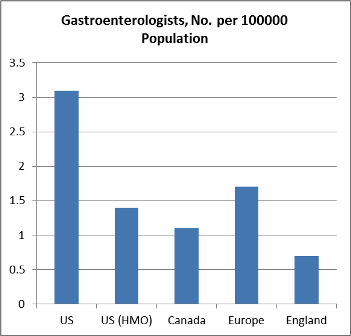
The Specialty Section Pediatric Gastroenterology focuses upon the disorders of the gastrointestinal tract in infants, children and adolescents. The section concerned with all aspects of gastroenterology in children. These include on the normal development and maturation of the gut, or those focusing upon specific disorders of the gut or liver. The impact of gut disorders upon nutrition is a further theme. Basic science, clinical and translational researches are all encouraged. Pediatric gastroenterologists are specially trained to perform diagnostic tests of a child’s digestive system. Special instruments, such as endoscopes, are used to examine the inside of the digestive tract or obtain tissue samples (biopsies). Endoscopic procedures pediatric gastroenterologists perform include esophagogastroduodenoscopy and colonoscopy. Pediatric gastroenterologists also treat bleeding, swallowing problems, or other problems encountered in the intestines. They have extensive expertise in managing nutritional problems in children, including placement and management of feeding tubes and intravenous nutrition and diagnosing and treating infants, children, and teens with liver disease. Our aim is to promote and highlight key aspects of pediatric gastroenterology, with the ultimate goal of developing new medical treatments and therapeutics for young patients affected by disorders of the gastrointestinal tract.
Why Philadelphia?
Philadelphia is the largest city in the Commonwealth of Pennsylvania and the fifth-most-populous city in the United States. It is located in the North-eastern United States along the Delaware and Schuylkill rivers, and it is the only consolidated city-country in Pennsylvania. Popular nicknames for Philadelphia are Philly and The City of Brotherly Love. Philadelphia is the economic and cultural centre of the Delaware Valley, home to 6 million people and the country's fifth-largest metropolitan area. In 1682, William Penn founded the city to serve as capital of Pennsylvania Colony. Philadelphia has shifted to an information and service-based economy. Financial activities account for the largest sector of the metro economy, and it is one of the largest health education and research centres in United States. The city is also nation's fourth-largest consumer media market, as ranked by Nielsen Media Research. Philadelphia is known for its arts and culture. The cheesesteak and soft pretzel are emblematic of Philadelphia cuisine, which is shaped by the city's ethnic mix. The city has more outdoor sculptures and murals than any other American city. Philadelphia's Fairmount Park is the largest landscaped urban park in the world. Summer is typically hot and muggy, fall and spring are generally mild, and winter is cold.
Why to attend???
Meet Your Target Market With members from around the world focused on learning about Pediatric Gastroenterology; this is your single best opportunity to reach the largest assemblage of participants from the Pediatric Gastroenterology community. Conduct demonstrations, distribute information, meet with current and potential customers, make a splash with a new product line, and receive name recognition at this 2-day event. World-renowned speakers, the most recent techniques, tactics, and the newest updates in Pediatric Gastroenterology fields are hallmarks of this conference.
Market Report for growth in the field of Pediatric Gastroenterology.
The global market was valued at USD 7,281.6 Million in 2014. This market is expected to grow at a CAGR of 5.8% during the forecast period (2015–2020) to reach USD 10,209.4 Million by 2020. The growth in this market is mainly driven by the increasing prevalence of pediatric diseases owing to the rising population; increasing use of products in healthcare; and technological improvements in modern techniques. However, the presence of stringent regulations for process approval and medication errors associated with diagnosis may restrain the growth of the market during the forecast period.

A Unique Opportunity for Advertisers and Sponsors at this International event:
http://pediatricgastroenterology.conferenceseries.com/sponsors.php
Major Analysis of Pediatric Gastroenterology Conference
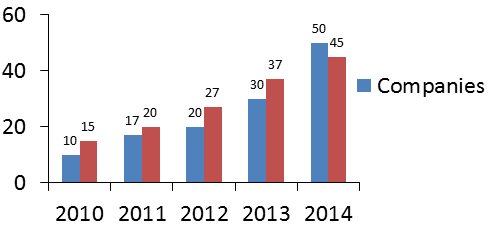
Target Audience:
Directors/ Managers & Business Intelligence Experts, Departmental Managers, Vice Presidents/ Directors & Brand Manufacturers/ Marketers of Consumer Products. Retailers, Marketing, Advertising and Promotion Agency Executives, Solution Providers (digital and mobile technology, P-O-P design, retail design, and retail execution), Professors and Students from Academia in the study of Pediatric Gastroenterology.
Target Audience:
Industry 20%
Academia 70%
Others 10%
Hospitals Associated with Pediatric Gastroenterology Research
Philadelphia
- The children hospital of Philadelphia, PA.
- St. Christopher's Hospital for Children, Philadelphia, PA.
- Nemours/ Alfred I. duPont Hospital for children Philadelphia,PA.
United States of America
- Boston Children's Hospital, Boston, MA
- Children's Hospital of Pittsburgh of UPMC, Pittsburgh, PA
- Ann and Robert H. Lurie Children's Hospital of Chicago, Chicago, IL
- Children's Hospital Colorado, Aurora, CO.
- Texas Children’s Hospital, Houstan, Texas
- Children’s Hospital of Denver, Colorado.
- Children’s Hospital Los Angeles, California.
- Children’s Memorial Hospital, Chicago, Illinios.
- Johns Hopkins Hospital, Baltimore, Maryland.
- Children’s Healthcare of Atlanta, Georgia.
- New York-Presbyterian Morgan Stabley-Komansky Children’s Hospital.
- UCSF Medical Centre, California.
- Vanderbilt University Medical Centre.
- Massachusetts General Hospital, Boston, Massachusetts.
- Cleveland clinic, Ohio.
Major Gastroenterology Associations around the Globe
- American Gastroenterological Association
- United European Gastroenterology
- Canadian Association of Gastroenterology (CAG)
- European Association for Gastroenterology, Endoscopy and Nutrition
- The Japanese Gastroenterological Association (JGA)
- IGA - Israel Gastroenterology Association
- Association of Gastroenterologists of Bosnia nad Herzegovina
- Bulgarian Association of Surgeons and Gastroenterologists
- European Crohns and Colitis Organisation
- Gastroenterohepatology Association of Montenegro - GAM
- The Australian and New Zealand Gastric and Oesophageal Surgery Association (ANZGOSA)
- Asian Pacific Association of Gastroenterology (APAGE)
- Ukrainian Association of Endoscopy.
Major Gastroenterology Societies around the Globe
- Gastroenterological Society of Australia
- British society of Gastroenterology
- European Society of Gastrointestinal Endoscopy (ESGE)
- European Society for Paediatric Gastroenterology Hepatology and Nutrition (ESPGHAN)
- European society of Neuogastroenterology & Motility
- American Society for Gastrointestinal Endoscopy
- British society for Pediatric Gastroenterology, Hepatology and Nutrition
- North American society for Pediatric Gastroenterology, Hepatology and Nutrition
- Russian Society for Digestive Endoscopy
- Japanese Society of Gastroenterology
- Hong Kong Society of Gastroenterology
- Hong Kong Society of Digestive Endoscopy
- Emirates Gastroenterology & Hepatology Society
- Belgian Society of Gastroinestinal Endoscopy
- Cyprus Society of Gastroenterology
- Czech Gastroenterological Society
- Danish Society of Gastroenterology and Hepatology
- Korean Society of Gastroenterology
- Ohio Gastroenterology Society
Conference Highlights
- Pediatric and Neonatal Gastroenterology
- Pediatric Gastrointestinal Diseases
- Biology of Gastrointestinal Function
- Clinical Pediatric Gastric Problems
- Pediatric Gastrointestinal Surgery
- Pediatric Gastrointestinal Oncology
- Pediatric Gastrointestinal Diseases Treatment
- Pediatric Gastrointestinal Drugs
- Pediatrics Frontiers Meet
- Entrepreneurs Investment Meet
- Pediatric Gastrointestinal Diseases Diagnosis
- Pediatric and Neonatal Practices
- Pediatric Nutrition
To share your views and research, please click here to register for the Conference.
To Collaborate Scientific Professionals around the World
| Conference Date | June 15-16, 2016 | ||
| Sponsors & Exhibitors |
|
||
| Speaker Opportunity Closed | Day 1 | Day 2 | |
| Poster Opportunity Closed | Click Here to View | ||
Useful Links
Special Issues
All accepted abstracts will be published in respective Our International Journals.
- Journal of Gastrointestinal and Digestive System
- Journal of Liver
- Journal of Medical and Surgical Urology
Abstracts will be provided with Digital Object Identifier by















